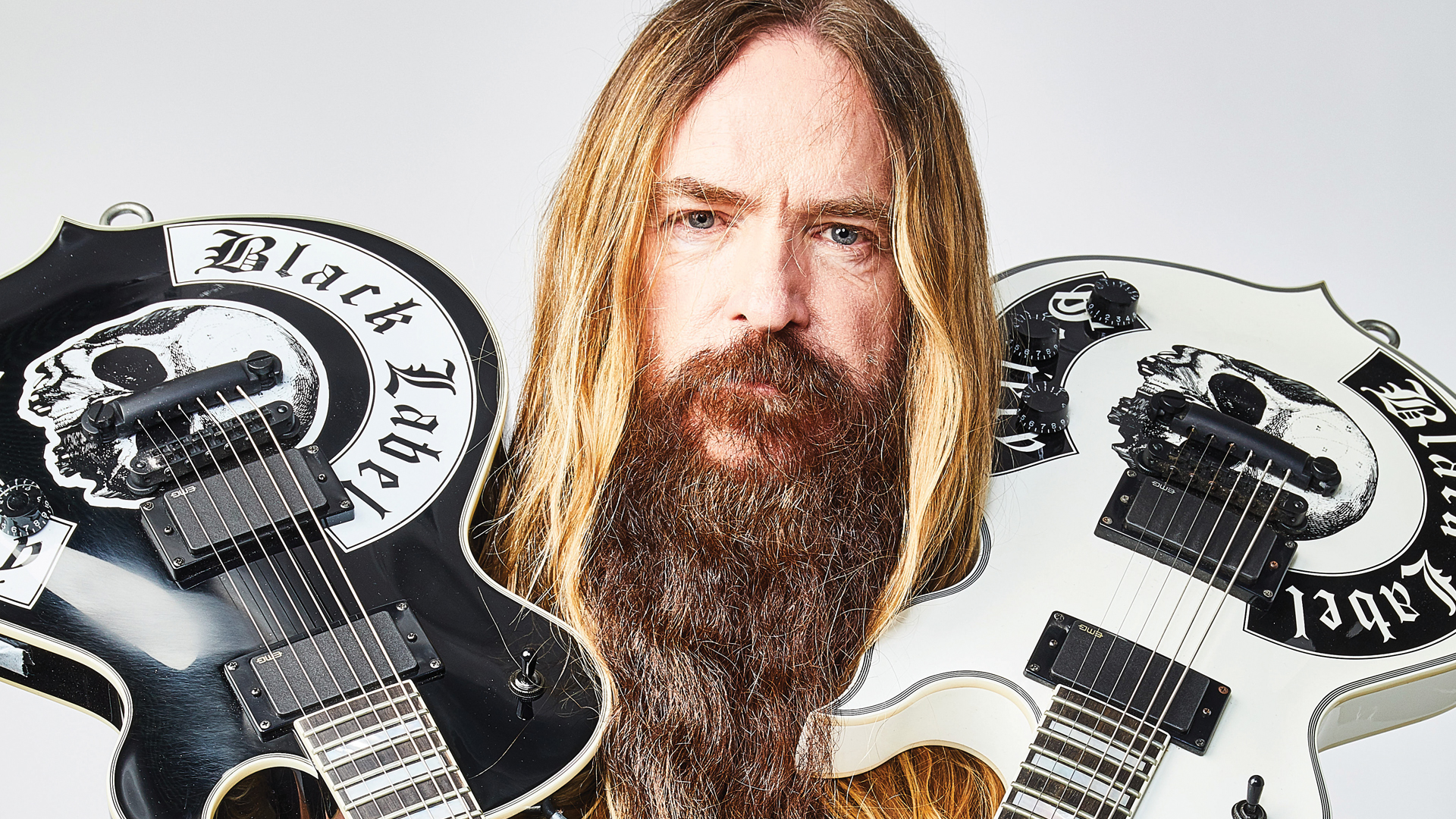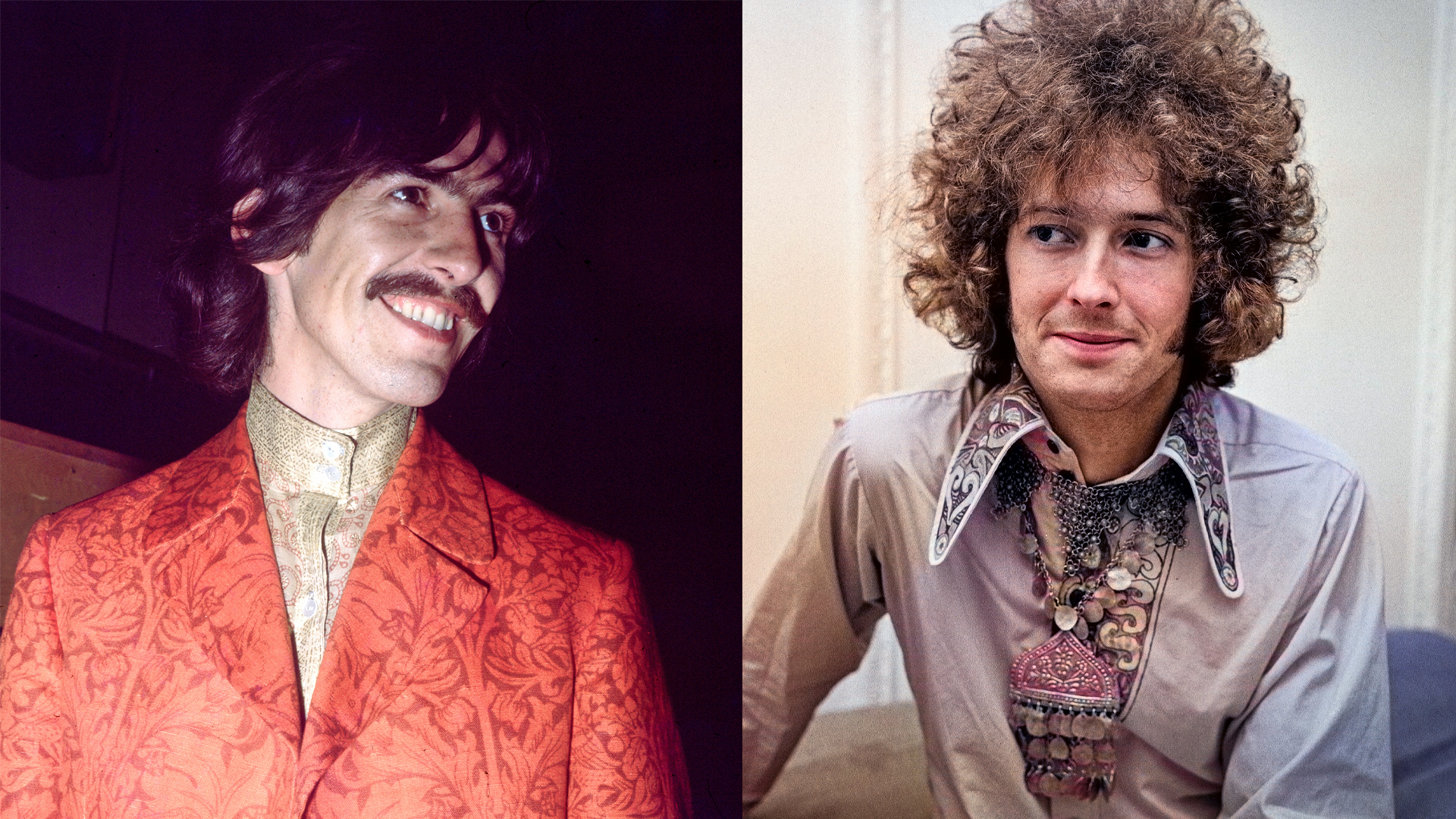"I wrote out a list of things I wasn’t going to do: No Floyd Rose. No three notes per string. It was like, 'Let me see how much I can get away with this.’ ” Zakk Wylde explains his weirdly effective method for creative guitar playing

When asked to describe how his guitar playing has evolved over the years, Zakk Wylde lets out a chortle. “Bro, there’s no way I can answer that,” he insists. “I’m
still evolving!”
Simply put, the rock legend finds joy and purpose in doing the work. Whether he’s on tour or recording (and there’s little time out of the year when he’s not involved with one of the other), he maintains the same sort of rigorous practice routine that he followed as a guitar-obsessed teenager more than 40 years ago.
“It’s like anything. If you want to get good at something, you put the time in,” Wylde says. “I’m always going over my technique and trying to better myself. It’s not going to happen just by wishing it. And I come up with surprises all the time. I’ll be running through Pat Martino stuff, practicing his chromatic licks, and then I’ll say, ‘Hey, what if I incorporate that into “Voodoo Chile”?’ The more you play and practice, the more likely you are to stumble on those kinds of ideas.
“I guess that’s all part of evolution. But like I said, as long as you keep at it, it never ends. It only ends when you stop.”
As Wylde notes in his tips for Guitar Player readers, there’s no substitute for diligence and dedication, but he also stresses individuality. “Don’t let anybody tell you what’s good and what’s not good,” he says. “If it’s what you feel, eventually people will come around. Or maybe they won’t. Who cares? You can’t dwell on that stuff. You do what you do. That’s all that matters.”
1. Play What You Love
“I can’t stress this enough: Play what you love — always. If something moves you, that’s what you should be doing. If something doesn’t move you, don’t worry about it. I know there’s guys that say things like, ‘Get out of your comfort zone.’ That’s fine for some people, but if you just don’t dig something, you can’t force yourself to like it. It’s like trying to eat food that you don’t like. No matter how many times somebody says it’s good for you, all you can think is, I just don’t like it.
All the latest guitar news, interviews, lessons, reviews, deals and more, direct to your inbox!
“I remember reading an interview with Johnny Winter. He was talking about how amazing classical guitar players were. He could admire their dedication and technical proficiency and all that, but in the end, he said that classical music didn’t move him like the blues. He’d rather listen to Albert King or B.B. or Buddy Guy.
“I can relate to that. I can only do what I love. I’m not going to try to do something just to show how diverse I can be, because it wouldn’t be real. You need to be authentic.”

2. Be Yourself
“Originality is a hard one. I mean, who’s an original? Let’s face it: We’re all taking bits from somebody else. Even the guitar players that we say, ‘Oh, so and so’s an original.’ Well, c’mon! They’re borrowing things from somebody they used to listen to.
“On the other hand, you don’t want to sound like a carbon copy of somebody, so that means you have some decisions to make. When I was a teenager, obviously
I loved Sabbath and Randy Rhoads and Jake E. Lee. And, of course, there was Eddie Van Halen doing his whole thing. I loved them all, but I didn’t want to sound like them.
"If you limit yourself to working with just a few elements, it forces you to be creative."
— Zakk Wylde
“I made a conscious decision not to do the things these other guys were known for.
I wrote out a list of things I wasn’t going to do. Everybody started playing with a Floyd Rose, so I wrote, ‘No Floyd Rose.’ People started playing three notes per string, so that was another: ‘No three notes per string.’
“Pretty soon, it was like, ‘All right, I guess I’ll just do pentatonics. Let me see how much I can get away with this.’ But that’s the beauty of it all: If you limit yourself to working with just a few elements, it forces you to be creative. It’s like, you’ve got two crayons and that’s all you’re allowed to color with. What are you gonna do?
“Did that make me an original? That’s up to other people to judge. I just knew that I didn’t want to be compared to anybody else.”

3. Make Vibrato Meaningful
“Vibrato is a weird aspect of guitar playing. I’ve heard a lot of players who have great technique — they’re clean and flawless — but when it comes time for them to end a phrase, their vibrato is a little off. It’s like they’re not confident about how to work that final note, so they just kind of shake it around or something. It doesn’t sound pleasing to the ear. It’s like a bee buzzing around your head.
"You want to try to convey some emotion through your playing, particularly when you’re bending strings."
— Zakk Wylde
“Listen to some of the greats: Eddie Van Halen, Paul Kossoff, Angus Young, Neal Schon — all of them have vibrato that’s pleasing to the ear. Jimi, Frank Marino, Robin Trower, David Gilmour — I could go on and on. Jared James Nichols is a new guy who really knows what he’s doing.
“Playing a note means knowing how to work it, and there’s a lot of different ways
to get inside that note. You want to try to convey some emotion through your playing, particularly when you’re bending strings. Try playing around with different speeds of string bending. There are times when it’s cool to go fast, but you don’t want to sound like you’ve had 650 cups of coffee — not all the time, at least. Slow down and explore all the little shades of the bend. Think of your vibrato like you’re singing. That’s a great frame of mind to put yourself in. Instead of using your throat, you’re putting your finger on a string, but the sound is similar.”
4. Scales: They’re Not for Everybody
“I never minded working and training. When I played little league and high-school football, I enjoyed the practice and the workouts. Same thing applied to guitar, even from an early age: I loved practicing my scales. Even now, I have a great time sitting down and running through scales. I’ll put on some Pat Martino or Joe Pass or maybe some Mahavishnu, and I’ll do my scales. But hey, that’s just me. I always saw the benefit of working hard at something and keeping at it till I got it right.
"Do you think Kurt Cobain sat around practicing scales? Do you think he was knocking himself out trying to play ‘Eruption’?"
— Zakk Wylde
“That doesn’t work for everybody, and I’m not going to tell them, ‘You must learn scales!’ I mean, do you think Kurt Cobain sat around practicing scales? Do you think he was knocking himself out trying to play ‘Eruption’?
“I really don’t think people are missing out on anything if they don’t know scales.
If that kind of thing doesn’t move them, they don’t have to go there. For me, I think it adds to what I do. I like being able to move around and throw different note patterns in solos. My advice to anybody about scales is, if you think you’re going to get something out of it, go for it. Start out slow and work on it till you can play faster. You’ll see the results.”
5. Don’t Be Afraid to Write
“I don’t put much thought into songwriting. If I allowed it to be some daunting task, I’d probably never write another song. I don’t have a process for writing. I’ll just play until something hits me, like a riff or a cool chord pattern.
“Sometimes I’ll land on something right off the bat, and it’s like, Okay, that one’s no problem. Other times you get something that doesn’t want to be a song today, so you come back to it. There’s lots of bits that sit around for years waiting for their turn.
“Again, don’t overthink it. And if you come up with something that’s simple and sounds good, don’t tell yourself you gotta make it more complicated. Look at songs like ‘Heart of Gold’ by Neil Young or Tom Petty’s ‘Free Fallin’’ — they’re just a few chords, but they’re awesome. Anything more in one of those songs would have been all wrong.
“Songwriting is a craft like anything else; the more you do it, the better you get at it. And I think the more you do it, the more likely you are to get inspired. Just try to enjoy the process along the way.”

Joe is a freelance journalist who has, over the past few decades, interviewed hundreds of guitarists for Guitar World, Guitar Player, MusicRadar and Classic Rock. He is also a former editor of Guitar World, contributing writer for Guitar Aficionado and VP of A&R for Island Records. He’s an enthusiastic guitarist, but he’s nowhere near the likes of the people he interviews. Surprisingly, his skills are more suited to the drums. If you need a drummer for your Beatles tribute band, look him up.
